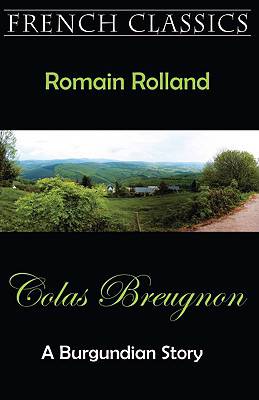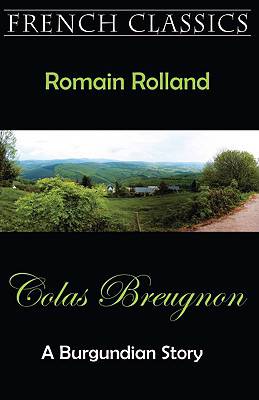
Je cadeautjes zeker op tijd in huis hebben voor de feestdagen? Kom langs in onze winkels en vind het perfecte geschenk!
- Afhalen na 1 uur in een winkel met voorraad
- Gratis thuislevering in België vanaf € 30
- Ruim aanbod met 7 miljoen producten
Je cadeautjes zeker op tijd in huis hebben voor de feestdagen? Kom langs in onze winkels en vind het perfecte geschenk!
- Afhalen na 1 uur in een winkel met voorraad
- Gratis thuislevering in België vanaf € 30
- Ruim aanbod met 7 miljoen producten
Zoeken
€ 19,45
+ 38 punten
Omschrijving
"Colas Breugnon" is a charming romance of life in Burgundy three hundred years ago. It is an "autobiographical" novel, the story being told in the first person by Colas, who reviews his fifty years of life, and describes all its joys and sorrows. The story is gay and humorous, and full of wise observations about life. --- "Colas Breugnon is the jovial Burgundian, the lusty wood-carver, the practical joker always fond of his glass, the droll fellow. Before everything, Colas Breugnon is a free man. He loves his king, but only so long as the king leaves him his liberty; he loves his wife, but follows his own bent; he is on excellent terms with the priest of a neighboring parish, but never goes to church; he idolizes his children, but his vigorous individuality makes him unwilling to live with them. He is friendly with all, but subject to none; he is freer than the king; he has that sense of humor characteristic of the free spirit to whom the whole world belongs. From the artistic point of view, 'Colas Breugnon' may perhaps be regarded as Rolland's most successful work. This is because it is woven in one piece, because it flows with a continuous rhythm, because its progress is never arrested by the discussion of thorny problems. It is written throughout in the same key. The first sentence gives the note like a tuning fork, and thence the entire book takes its pitch. Throughout, the same lively melody is sustained. The writer employs a peculiarly happy form. His style is poetic without being actually versified; it has a melodious measure without being strictly metrical. This work is unlike any of Rolland's other writings. It is not an historic study, a critical appreciation, a philosophic essay, nor yet even, in the strictest sense of the word, a novel. It is rather a volume of reminiscences as told by a man of fifty; and the very aimlessness with which this man talks is in itself a pleasure; for Breugnon is himself the one subject of the book, holding our attention by the display of a wayward, sympathetic, and aggressive personality." (Stefan Zweig)
Specificaties
Betrokkenen
- Auteur(s):
- Vertaler(s):
- Uitgeverij:
Inhoud
- Aantal bladzijden:
- 152
- Taal:
- Engels
- Reeks:
Eigenschappen
- Productcode (EAN):
- 9781595691330
- Verschijningsdatum:
- 15/04/2009
- Uitvoering:
- Paperback
- Formaat:
- Trade paperback (VS)
- Afmetingen:
- 140 mm x 216 mm
- Gewicht:
- 199 g

Alleen bij Standaard Boekhandel
+ 38 punten op je klantenkaart van Standaard Boekhandel
Beoordelingen
We publiceren alleen reviews die voldoen aan de voorwaarden voor reviews. Bekijk onze voorwaarden voor reviews.









